India’s Auto Sector Charts Multi-Fuel Roadmap As Safety, Electrification Dominate Industry Agenda
- By TT News
- September 18, 2025
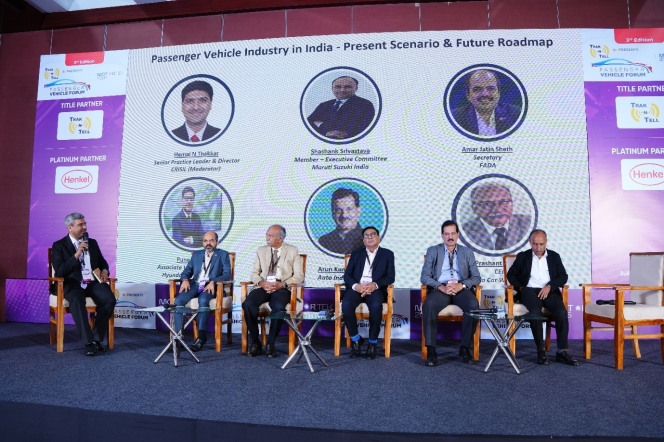
India’s passenger vehicle industry must embrace a technology-neutral fuel strategy whilst accelerating safety standards and building resilient supply chains, senior executives and policymakers concluded at a major industry gathering in Pune 2nd September 2025, as the country grapples with balancing affordability against rapid technological transformation.
The third edition of the Passenger Vehicle Forum, held at Hyatt Regency in Viman Nagar, brought together more than 300 senior industry leaders, policymakers, original equipment manufacturers, technology innovators and supply chain experts for discussions spanning electrification, software-defined vehicles, artificial intelligence integration and evolving consumer behaviour in the world’s third-largest automotive market.
Fuel Transition Demands Flexibility
Industry leaders stressed that India’s path to cleaner mobility cannot rely solely on battery electric vehicles, calling instead for a diversified approach incorporating hybrids, compressed natural gas, biofuels and hydrogen technologies.
“India’s path to cleaner mobility must be technology-neutral—balancing EVs with hybrids, CNG, biofuels, and hydrogen—while fostering indigenous R&D, supportive policies, and collaborative efforts to ensure energy security and sustainability,” panellists from NIBE, the International Council on Clean Transportation, IIT Kanpur, Hydrovert Energy and the Automotive Research Association of India said during discussions on the future fuel mix.
The forum opened with a research presentation by Hemal N Thakkar, senior practice leader and director at Crisil, outlining the passenger vehicle industry's present scenario and future roadmap. Thakkar subsequently moderated a panel featuring Shashank Srivastava of Maruti Suzuki India, Amar Jatin Sheth from the Federation of Automobile Dealers Associations, automotive industry veteran Arun Kumar Malhotra, Puneet Anand of Hyundai Motor India, and Prashant Shitoot from Auto Yoga Car Wellness Centre.
“Sustainability, safety, technology adoption and affordability were identified as the four pillars shaping India’s automotive future, with collaboration across OEMs, government, and stakeholders seen as critical for long-term growth,” the opening panel concluded, whilst highlighting the dramatic shift in consumer preferences from hatchbacks to sport utility vehicles in the post-COVID period.
Panellists emphasised persistent affordability challenges in entry-level car segments and called for regulatory clarity on goods and services tax structures, ethanol blending mandates and corporate average fuel economy norms. The strengthening of aftermarket services and upgrading of local service providers were identified as critical priorities, alongside exploring new revenue models through telematics and subscription services.
Supply Chain Vulnerabilities Expose Import Dependence
A panel featuring senior executives from Honda Cars India, Omega Seiki Mobility, Tata AutoComp, BMW and Nomura Research Institute examined critical vulnerabilities in India’s electric vehicle supply chain, with particular emphasis on the country’s heavy reliance on imported battery cells.
Abhishek Sahi of Honda Cars India, Preetesh Singh from Nomura Research Institute, Dr Ajit Kumar Jindal of Tata AutoComp and Dr Arvind Gupta from BMW underscored the country’s dependence on imports—especially battery cells—while emphasising the strategic imperatives for building a sustainable EV ecosystem.
The executives highlighted the importance of accelerated localisation, stronger supplier partnerships and robust risk management frameworks to navigate global disruptions and build a resilient domestic manufacturing base.
Experts from IIT Kanpur, Altigreen, ARAI, Henkel and Stellantis discussed the transition from internal combustion engines to electric vehicles during a separate electrification panel, addressing lightweighting strategies, advanced materials and the critical role of startups and research centres. Panellists identified limited domestic battery production, raw material dependence and talent development as significant hurdles, whilst stressing the need for a collaborative ecosystem to meet global standards and enhance India’s competitiveness against markets such as China.
Safety Emerges As Consumer Priority
Vehicle safety is rapidly shifting from a regulatory compliance issue to a consumer-driven purchasing criterion, according to experts from ARAI, the Institute of Driving Training and Research, ZF and Bharat NCAP, who participated in a panel moderated by Neelam Pandey Pathak of the Women in Mobility Alliance and Rozgar Dhaba.
“Safety is shifting from a regulatory mandate to a consumer-driven priority, with evolving standards, ADAS integration, and stronger OEM-supplier collaboration set to align India with global benchmarks by 2027-28,” the panellists said, noting that India accounts for 11 percent of global road accidents.
The discussion highlighted advances in crash testing methodologies, driver training programmes, localised safety technologies and the growing influence of Bharat NCAP ratings on consumer purchasing decisions. Integration of advanced driver assistance systems and enhanced collaboration between manufacturers and suppliers was identified as an essential step towards meeting international safety benchmarks.
Software, AI Reshape Automotive Landscape
The forum dedicated substantial attention to the transformation of vehicles into software-defined platforms, with experts from EY-Parthenon, Elektrobit, ARAI, Vayve Mobility and HackersEra exploring the shift from hardware-centric to software-driven architectures.
Nandakumar Kollu of Elektrobit India, Nilesh Bajaj from Vayve Mobility and Vikash Chaudhary of HackersEra Automotive Cybersecurity discussed the critical importance of cybersecurity, over-the-air update capabilities, evolving regulatory frameworks and new monetisation models for software features.
Panellists highlighted India’s opportunity to lead in SDV development by leveraging its strong IT talent, growing EV ecosystem, and increased R&D investments, while stressing the need for collaboration across OEMs, suppliers, regulators, and academia.
A separate panel examined artificial intelligence applications across automotive design, customer engagement, supply chain management and aftersales service. Experts from Xane AI, Skoda Auto Volkswagen, Kinetic Green and DaveAI addressed challenges around affordability, data privacy and scalability in emerging markets.
Panellists emphasised the need for responsible, empathetic AI solutions, stronger regulatory frameworks, and industry-academia collaboration to build talent and ensure localised, consumer-centric innovation.
Consumer Insights Reveal Market Evolution
A panel led by K Srikumar of ICRA, featuring executives from Mahindra & Mahindra, MG Motor, Chitra Cars, Honda and Trak N Tell, examined the evolving Indian passenger car market, identifying significant shifts in consumer mindset, dealership dynamics and financing trends.
Ravinder Singh Rawal from Mahindra & Mahindra Automotive, Saurabh Tripathi of Morris Garages India and industry veteran Minesh Jha discussed rising demand for safety and comfort features, the growing importance of digital research channels alongside the continued relevance of physical dealerships, and the rapid expansion of the used car market.
Panellists agreed that the future will be driven by safety, cost efficiency, electrification, and personalised customer experiences, whilst noting persistent challenges in electric vehicle adoption related to financing availability and charging infrastructure gaps.
A panel moderated by Kaushik Madhavan explored future in-vehicle infotainment and telematics systems, featuring insights from Pranshu Gupta, founder and chief executive of Trak N Tell, alongside experts from Stellantis India and the National Institute of Design. Priyanka Shukla of Stellantis and Pratheek P Ashok from the National Institute of Design joined discussions on how startups can build credibility whilst manufacturers drive differentiation through user experience and connected features.
Panellists also highlighted challenges around affordability, ADAS adoption, and consumer awareness, stressing the need for innovation, data-driven solutions, and industry-academia collaboration to shape India’s next phase of mobility.
Technical presentations during the forum included an introduction to telematics solutions by Gupta and a spotlight on noise, vibration and harshness challenges in electric mobility repair by Rohit Ekhe and Alistair Saldanha from Henkel’s ACM India division.
Other notable speakers included Anil Srivastava from IIT Kanpur, Avik Chatterjee from ARAI, and Achyut Deshmukh from Stellantis. They contributed diverse expertise across the forum’s two parallel tracks, which focused on strategy, growth, and market dynamics, as well as technology, innovation, and future trends.
The forum’s organisers said the event reinforced its position as India’s premier platform dedicated to shaping the future of the passenger vehicle ecosystem, with the next edition scheduled for 2026.
Toyo Tires Proxes CR1 Chosen As Original Equipment For All-New Perodua Traz
- By TT News
- February 09, 2026
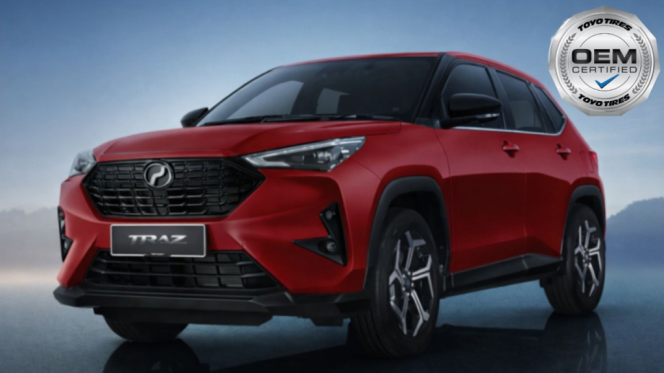
Toyo Tires has announced that its Proxes CR1 tyre has been selected as the official Original Equipment fitment for the all-new Perodua Traz. This partnership begins with the vehicle's 1.5 (X/H) variant, which rolls off the line equipped with 215/60R17 Proxes CR1 tyres in Malaysia, engineered to perfectly match the vehicle's comfort-driven character.
Through the application of Toyo Tires’ advanced T-Mode and Nano Balance Technology, the Proxes CR1 delivers on its promise of refined comfort and confident performance from the first drive. The optimised tread design ensures smooth responsiveness and reassuring stability while actively reducing road noise. Drivers benefit from reliable grip and stable handling across both wet and dry conditions, contributing to an efficient and secure journey.

As a leader in the market, Toyo Tires offers the Proxes CR1 and CR1 SUV as its most comprehensive range in Malaysia, catering to a wide variety of passenger cars and SUVs with sizes available from 14 to 20 inches.
- Dunlop
- Sumitomo Rubber
- Dunlop SP SPORT MAXX 060
- Dunlop e. SPORT MAXX # C-HR+
- Toyota Motor Corporation
Dunlop Selected As OE Tyre Supplier For New Toyota C-HR+ BEV
- By TT News
- February 09, 2026
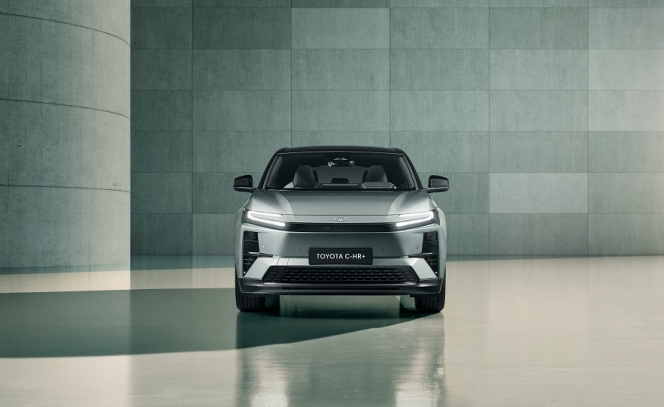
Dunlop (company name: Sumitomo Rubber Industries, Ltd.) has commenced supply of its Dunlop SP SPORT MAXX 060 and e. SPORT MAXX tyres as original equipment for Toyota Motor Corporation’s new C-HR+, an all-electric vehicle launched in Europe in December 2025. This BEV model combines a stylish design with an expansive cabin and achieves a greater driving range than previous versions through enhancements including modified battery cells.

The supplied tyres contribute directly to this improved range by utilising a new tread rubber compound that lowers rolling resistance. They also provide a quieter ride, a benefit of their optimised tread pattern design. In addition to delivering strong steering stability and wet grip performance, the tyres feature the proprietary Nano Black technology. This technique produces a deeper, richer black on the sidewalls, enhancing the visibility of the Dunlop branding and lending a more premium aesthetic to the vehicle.
- Yokohama Rubber
- Yokohama GEOLANDAR SUV
- SUV Tyres
- Minivan Tyres
- Mitsubishi Motors
- Mitsubishi Delica D:5
Mitsubishi Delica D:5 To Run On Yokohama GEOLANDAR SUV Tyres
- By TT News
- February 03, 2026
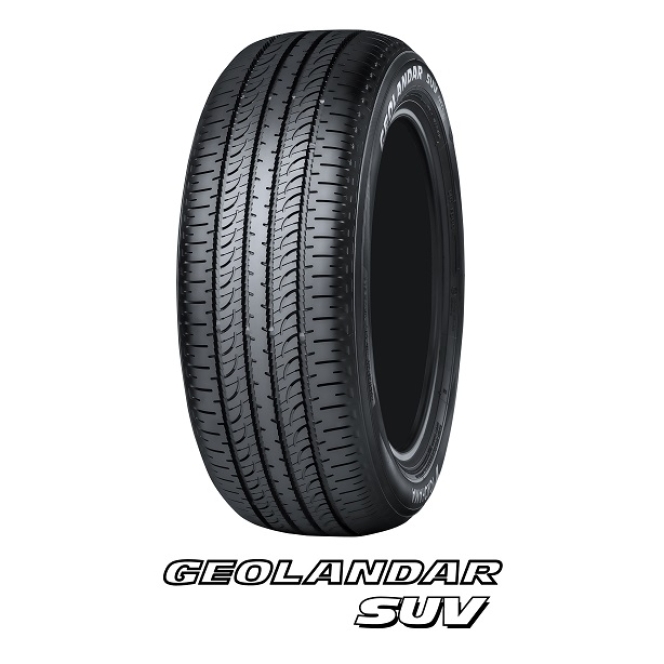
The Yokohama Rubber Co., Ltd. has expanded its established partnership with Mitsubishi Motors Corporation through the selection of its GEOLANDAR SUV tyre as original equipment for the newly launched 2026 Delica D:5 minivan. This latest generation of the vehicle, which debuted in Japan in January, features the tyre in size 255/55R18 98H. The collaboration builds upon a proven history, as the GEOLANDAR SUV was also fitted to the previous Delica D:5 model. For this new application, Yokohama engineers focused on refining the tyre’s performance, achieving enhancements in fuel economy and a reduction in external noise compared to the already well-regarded predecessor.
The GEOLANDAR SUV line is engineered primarily for modern minivans and on-road-focused SUVs, balancing the demand for everyday comfort and safety with versatile utility across diverse surfaces. Yokohama’s relationship with Mitsubishi extends beyond this single model, with the GEOLANDAR brand appearing on several vehicles in the automaker’s portfolio. Notably, the GEOLANDAR G94 model has been supplied in recent years for the Triton and Pajero Sport, underscoring a continued mutual confidence between the two companies.
This tyre supply agreement aligns with the comprehensive updates characterising the new Delica D:5. Mitsubishi has introduced refreshed exterior and interior styling while incorporating sophisticated all-wheel control technology and advanced driver-assistance systems. These improvements collectively elevate the distinctive dynamic character and driving capabilities for which the model is known, with Yokohama’s tyres contributing directly to its on-road performance and efficiency.
Subaru’s 2026 Solterra BEV Rolls Out On Yokohama GEOLANDAR X-CV Tyres In North America
- By TT News
- February 03, 2026
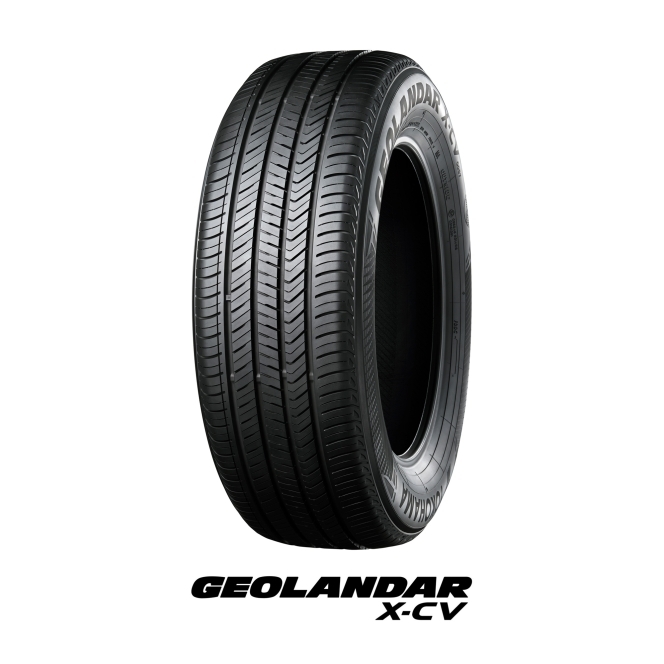
The Yokohama Rubber Co., Ltd. has initiated original equipment supply of its GEOLANDAR X-CV tyres for Subaru’s new 2026 Solterra SUV-type battery electric vehicle (BEV), in North America, size 235/50R20 100V. For the Japanese market Solterra, the company continues to provide the ADVAN V61 model. This new GEOLANDAR X-CV is engineered as a modern highway terrain tyre that meets the M+S standard, emphasising high-speed capability and drivability alongside a balanced performance in safety, comfort, durability and fuel efficiency.
Developed through Yokohama’s AI-powered HAICoLab framework, which blends human creativity with artificial intelligence for advanced data processing, the tyre incorporates specific technologies for electric vehicles. This is signified by an ‘E+’ mark on the sidewall, indicating enhancements in durability, quietness and energy efficiency tailored to electrified vehicles.
This supply agreement aligns with the strategic goals outlined in Yokohama Transformation 2026, the company’s medium-term management plan running through 2026. A core initiative of this strategy is to increase the proportion of high-value-added tyre sales by expanding original equipment placement for key global brands. This includes actively promoting both the flagship ADVAN line and the GEOLANDAR series for SUVs and pickup trucks on new vehicles worldwide.







Comments (0)
ADD COMMENT